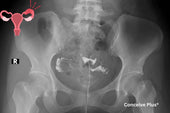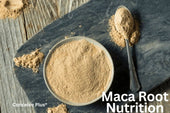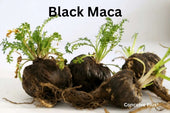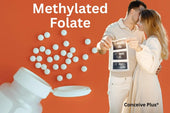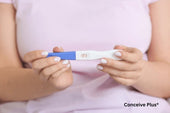Perelel Prenatal Reviews Are Sparking Conversations Among Expectant Mothers

Pregnancy marks a transformative journey for many individuals, involving unique demands on one’s physical, emotional, and nutritional well-being. As the body changes to accommodate a developing fetus, the importance of balanced nutrition intensifies. Healthcare professionals frequently recommend prenatal supplements to address potential dietary gaps in vitamins, minerals, and other essential nutrients. Over the years, expectant mothers have grown more diligent about researching not only what goes into their bodies, but also the reliability and safety of these products. The supplement landscape has subsequently evolved, with companies increasingly catering to personalized nutritional needs and lifestyle preferences.
This shift highlights a desire among pregnant individuals to better understand the underlying science behind prenatal products. While most prenatal formulas aim to support fetal development through a standardized array of vitamins and minerals, a growing number of parents-to-be now seek multi-faceted approaches that address concerns such as hormonal shifts, immunity, and overall maternal well-being. As interest in more refined prenatal formulations rises, anecdotal experiences have become a cornerstone of research. Expectant mothers no longer rely solely on clinical data; they also turn to user perspectives, detailed ingredient lists, and evolving discussions in prenatal communities—including perelel prenatal reviews. Such dialogue around new brands and formulations continues to expand, reflecting a broader trend of wanting clarity and thorough exploration before committing to a product.
Balancing Tradition and Innovation in Nutritional Formulations
Historically, prenatal supplements have centered on iron and folic acid to prevent anemia and mitigate the risk of neural tube defects in developing babies. Yet as nutritional science advances, many brands have begun to integrate innovative ingredients that provide a more complete approach. From choline to omega-3 fatty acids, from probiotics to carefully measured herbal extracts, these additions address an expanded range of health aspects. Women often look for products that cater to evolving tastes and sensitivities during pregnancy—be it fluctuating taste buds, morning sickness, or intolerance to certain components [1].
Numerous expectant mothers appreciate the inclusion of vitamins like B12, vitamin D3, and vitamin K2 to cover multiple biochemical pathways in the body. Modern formulas also explore whether certain botanicals and micronutrients can assist with hormone regulation, stress management, or even postpartum recovery. By focusing on these wider health parameters, companies strive to design versatile prenatal supplements that reflect the complexities of pregnancy. Nevertheless, every addition triggers the need for rigorous testing and research to assure safety and efficacy, as both mother and baby could be impacted. This demand for comprehensive verification underscores the heightened scrutiny of manufacturing processes, ingredient sourcing, and potential side effects.
Key Nutritional Building Blocks for Expectant Mothers
A typical prenatal formula often begins with fundamental nutrients designed to foster fetal growth and bolster maternal health. Folate (or folic acid), for example, is deemed critical for neurological development, while iron promotes healthy red blood cells, crucial for transporting oxygen to the fetus. Prenatal Calcium, magnesium, and vitamin D support bone strength, meeting heightened demands on the mother’s skeletal system and contributing to the baby’s bone formation. Meanwhile, DHA—an omega-3 fatty acid commonly found in fish oil—can benefit brain and eye development in the growing child.
Though a single supplement can’t replicate a varied diet, prenatal vitamins offer an additional shield against nutritional deficiencies. Pregnant individuals often face barriers such as aversions to certain foods, morning sickness, or difficulties in meal planning. Prenatal formulations can alleviate some of these worries by providing a consistent baseline of critical nutrients. However, the sheer number of options in the marketplace can be overwhelming. Hence, an in-depth look at each brand’s ingredient panel, clinical endorsements, and user feedback frequently becomes integral to making informed decisions. Nutritional best practices today focus on synergy between supplements and a balanced diet, rather than relying on one approach alone [2].
Addressing Individual Wellness Needs During Pregnancy
No two pregnancies are entirely alike, and personalized care has become a hallmark of modern maternal health. Some expectant mothers grapple with conditions like gestational diabetes, high blood pressure, or thyroid imbalances that call for specialized guidance. Others may adhere to certain dietary restrictions, whether for ethical, cultural, or health reasons. With these diverse circumstances, a one-size-fits-all supplement regimen might not always suffice. Personalized nutrition strategies—which may include modifications in dosage, the timing of nutrient intake, or the addition of targeted compounds—have therefore gained traction.
Pregnancy also transforms energy levels, sleep patterns, emotional states, and digestive functions. Women might discover that their nutritional demands fluctuate across different trimesters, prompting them to explore products that adapt to these changing needs. As a result, some companies structure their offerings to align with the typical course of pregnancy, adjusting nutrient ratios for each trimester. While this approach can offer compelling benefits, it also underscores the necessity of regular medical supervision, ensuring that these shifts remain compatible with the mother’s individual requirements. Empathetic, evidence-based care from healthcare professionals fosters a more precise understanding of how specific nutrients impact both the mother’s and baby’s evolving needs [3].
Scrutinizing Product Suitability Through Multiple Angles
Before finalizing any prenatal supplement, pregnant individuals often evaluate how well a product matches personal beliefs and day-to-day realities. This involves asking questions about quality assurance, ingredient sourcing, potential allergens, or how the supplement was manufactured. With so many prenatal vitamins now available, investigating brand certifications or transparency can be a practical step. Consumers may opt for products that undergo third-party testing to confirm label accuracy or to ensure they’re free from harmful contaminants.
In addition to scientific validation, cost-effectiveness can influence purchasing decisions. Some brands charge premium prices due to specialized ingredients or niche formulations. For budget-minded mothers, an equally viable alternative might be a more traditional prenatal product that fulfills basic nutritional needs without additional frills. The ultimate goal is identifying a product that fits seamlessly into everyday life while maintaining safety and evidence-based design. In this pursuit, thorough scrutiny across multiple channels—scientific, anecdotal, ethical, and economic—can guide a more confident choice [4].
Reflecting on Community Insights (Inclusion of “perelel reviews”)
Among the rising number of supplement options, certain brands garner special attention from online communities discussing the subtle distinctions between various prenatal offerings. In these circles, perelel reviews often come up, especially among individuals who have tried a variety of products to combat pregnancy-related discomforts or to align with shifting nutritional needs. Many of these discussions showcase how multi-stage formulations, targeted nutrient levels, and well-researched ingredients might set one option apart from another. Observing these conversations can serve as a practical starting point for those uncertain about which product best complements their lifestyle. While it’s clear that no single brand will work universally, reading about others’ experiences helps pinpoint questions that can be addressed in a clinical setting [5].
The Bottom Line
Perelel prenatal reviews frequently highlight the interplay of advanced nutrition and user experiences, reflecting a broader cultural shift toward informed decision-making in pregnancy. Selecting the right prenatal supplement remains a deeply personal choice, shaped by a tapestry of medical guidance, individual biology, and lifestyle considerations. With ongoing developments in prenatal science, more women and healthcare providers are exploring nuanced formulations that integrate essential vitamins, minerals, and additional compounds to address evolving pregnancy demands. While user feedback can illuminate subtle advantages or drawbacks, it’s crucial to balance these insights with professional assessments.
As the prenatal market continues to expand, parents-to-be find themselves presented with increasingly specialized products aimed at meeting diverse needs. By examining ingredient profiles, understanding core nutritional principles, and consulting reliable sources, one can make a more empowered decision. The goal is to foster a supportive environment where mothers and developing babies thrive. Ultimately, any prenatal supplement should serve as part of a holistic plan that includes balanced meals, proper rest, and open communication with healthcare providers throughout pregnancy and postpartum. The result is not just a product choice, but a commitment to sustained well-being for both mother and child.
References
- O'Leary F, Samman S. Vitamin B12 in health and disease. Nutrients. 2010 Mar;2(3):299-316. doi: 10.3390/nu2030299. Epub 2010 Mar 5. PMID: 22254022; PMCID: PMC3257642.
- Pérez-López FR, Pilz S, Chedraui P. Vitamin D supplementation during pregnancy: an overview. Curr Opin Obstet Gynecol. 2020 Oct;32(5):316-321. doi: 10.1097/GCO.0000000000000641. PMID: 32487800.
- Marshall NE, Abrams B, Barbour LA, Catalano P, Christian P, Friedman JE, Hay WW Jr, Hernandez TL, Krebs NF, Oken E, Purnell JQ, Roberts JM, Soltani H, Wallace J, Thornburg KL. The importance of nutrition in pregnancy and lactation: lifelong consequences. Am J Obstet Gynecol. 2022 May;226(5):607-632. doi: 10.1016/j.ajog.2021.12.035. Epub 2021 Dec 27. PMID: 34968458; PMCID: PMC9182711.
- National Academies of Sciences, Engineering, and Medicine; Health and Medicine Division; Food and Nutrition Board; Harrison M, editor. Nutrition During Pregnancy and Lactation: Exploring New Evidence: Proceedings of a Workshop. Washington (DC): National Academies Press (US); 2020 Jul 31. 5, Dietary Supplements. Available from: https://www.ncbi.nlm.nih.gov/books/NBK562622/
- Nazik E, Eryilmaz G. Incidence of pregnancy-related discomforts and management approaches to relieve them among pregnant women. J Clin Nurs. 2014 Jun;23(11-12):1736-50. doi: 10.1111/jocn.12323. Epub 2013 Sep 13. PMID: 24028734.









